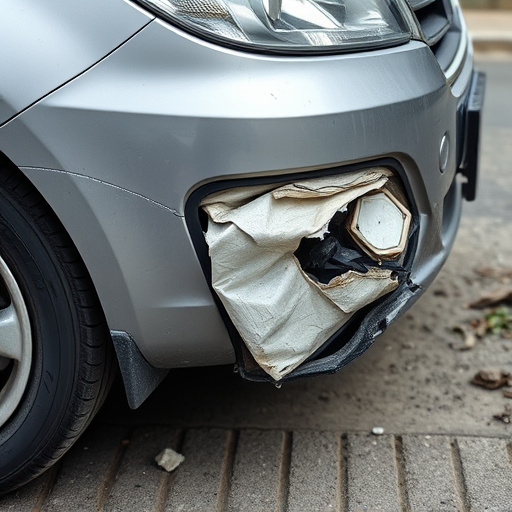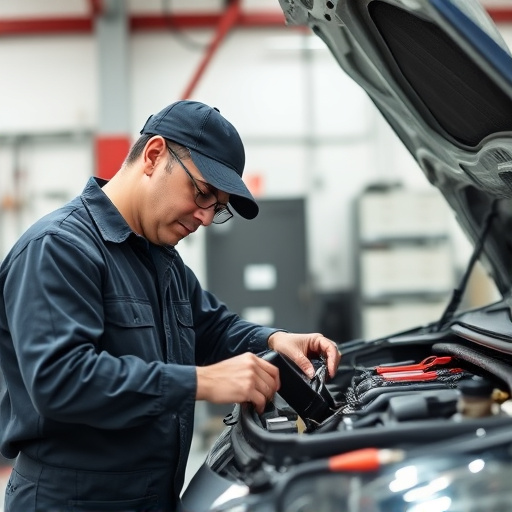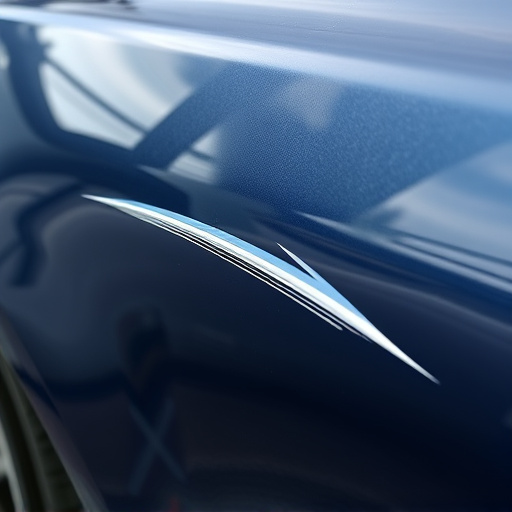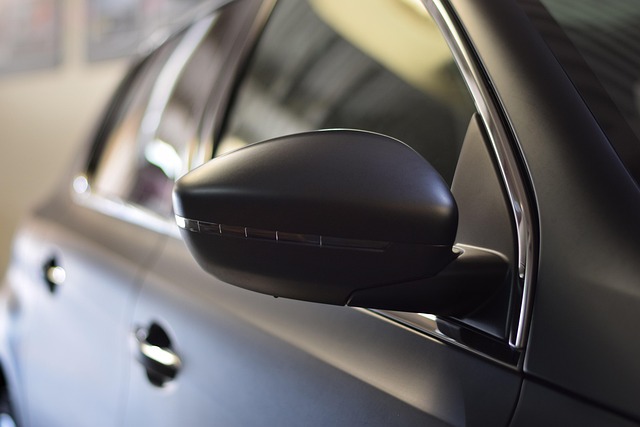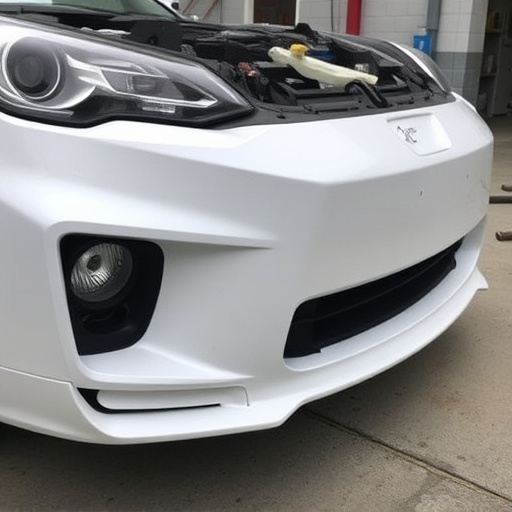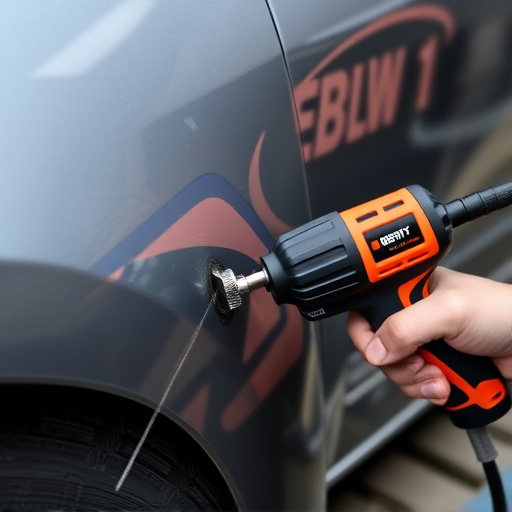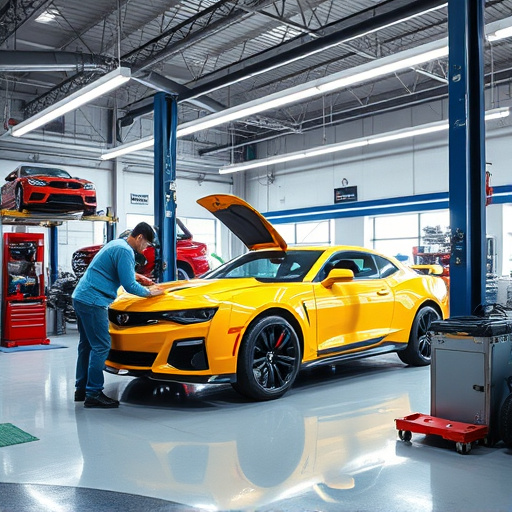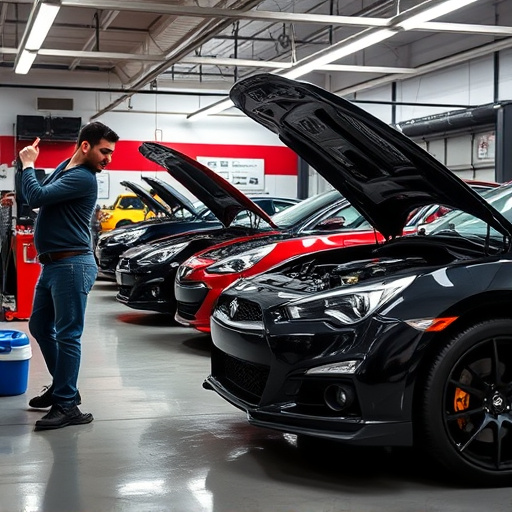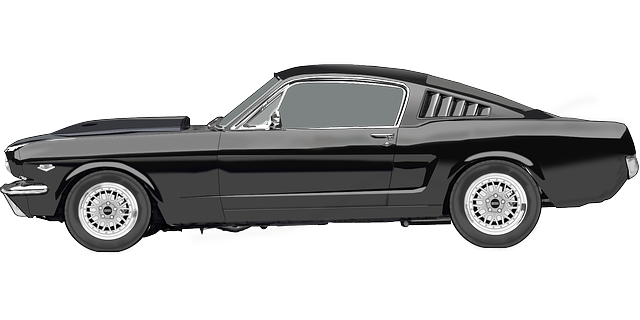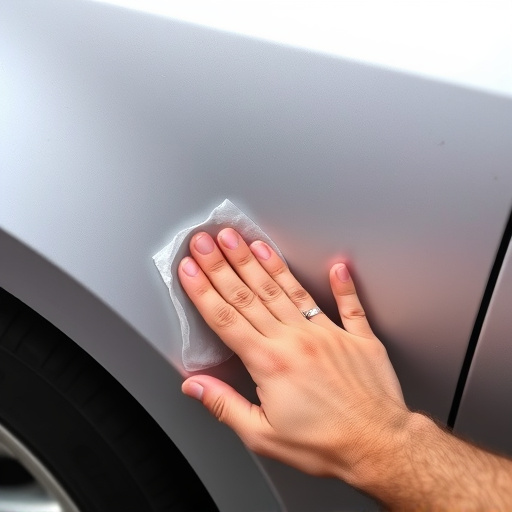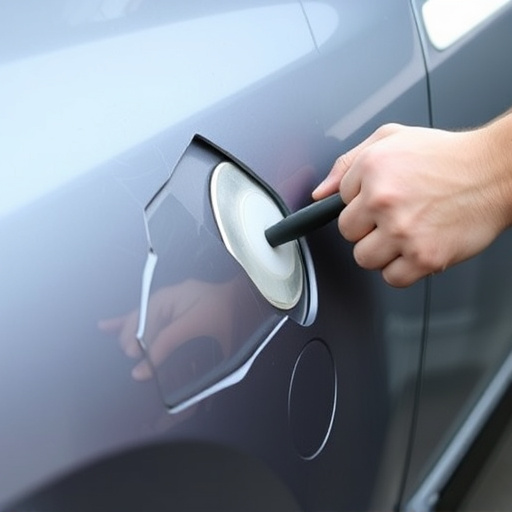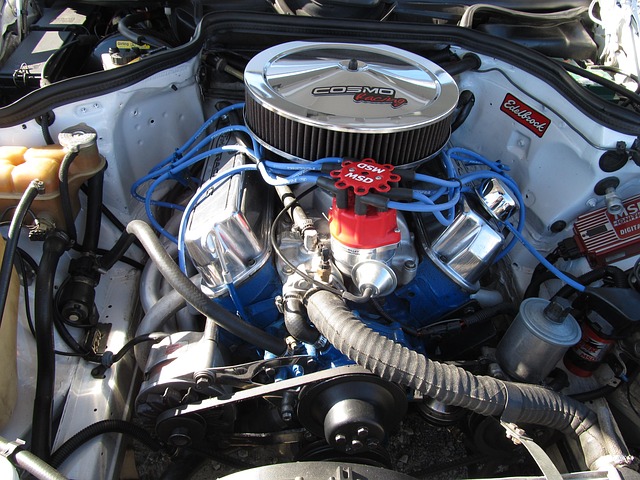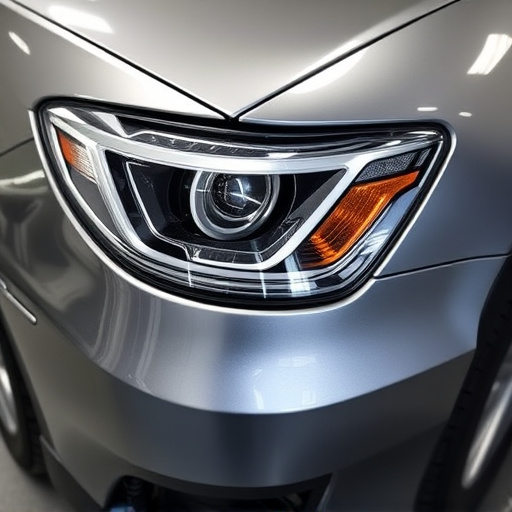Mercedes-Benz upholds safety across manufacturing through stringent Euro NCAP standards, advanced welding techniques like laser and robot-assisted methods, and rigorous technician training. Their commitment ensures structural integrity, sets industry benchmarks, and facilitates efficient auto body services for superior passenger protection and vehicle longevity.
Mercedes-Benz, renowned for its luxury and innovation, places safety at the heart of its vehicle production. Adhering to Euro NCAP standards and global safety guidelines, the brand employs advanced Mercedes factory welding methods to ensure structural integrity. This article explores Mercedes’ commitment to safety, delving into Euro NCAP’s rigorous collision testing and the modern welding techniques shaping today’s vehicle construction, all while highlighting the precision and quality inherent in Mercedes factory welding methods.
- Understanding Mercedes' Commitment to Safety Standards
- Euro NCAP: The Benchmark for Collision Testing
- Advanced Welding Techniques in Modern Vehicles Production
Understanding Mercedes' Commitment to Safety Standards
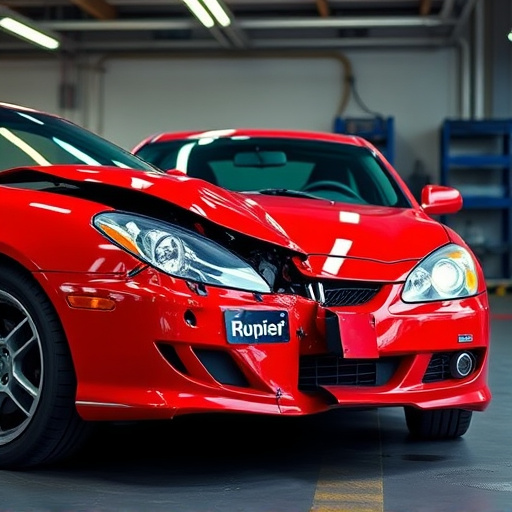
Mercedes-Benz is renowned for its unwavering commitment to safety, a principle that permeates every aspect of their vehicle manufacturing process, from design to production. The brand follows stringent Euro NCAP (European New Car Assessment Programme) standards, ensuring their cars meet or exceed safety expectations across various crash scenarios. This dedication extends to their factory welding methods, where precision and quality are paramount.
The Mercedes factory welding techniques are meticulously honed to align with global safety standards, guaranteeing the structural integrity of every car produced. These methods involve advanced technologies and rigorous training for technicians, ensuring consistent, robust welds in every auto body services and collision repair shop that bears the three-pointed star. This commitment to excellence not only protects occupants but also sets a benchmark for the entire automotive industry, demonstrating Mercedes’ relentless pursuit of safety in every car bodywork they craft.
Euro NCAP: The Benchmark for Collision Testing
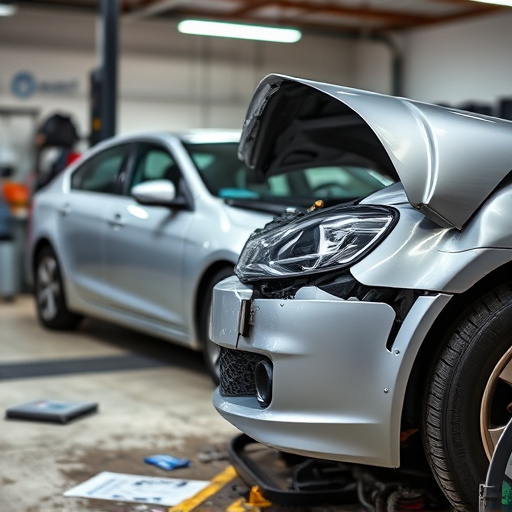
Euro NCAP, or European New Car Assessment Programme, serves as a benchmark for collision testing globally. This organization conducts rigorous tests on vehicles to evaluate their safety performance, providing consumers with critical information about potential risks. Mercedes, renowned for its luxury and engineering excellence, strictly adheres to Euro NCAP standards in all its factory welding methods. By doing so, the brand ensures that each vehicle manufactured meets or exceeds global safety expectations, setting a high bar for the industry.
In the realm of collision repair, Mercedes’ commitment to Euro NCAP guidelines translates into robust procedures for weld quality control. This meticulous approach not only guarantees structural integrity during accidents but also plays a pivotal role in restoring vehicles to their pre-accident condition, including expert vehicle paint repair when needed. For those seeking top-tier auto repair near them, Mercedes’ adherence to these standards offers reassurance regarding the safety and reliability of their vehicles.
Advanced Welding Techniques in Modern Vehicles Production
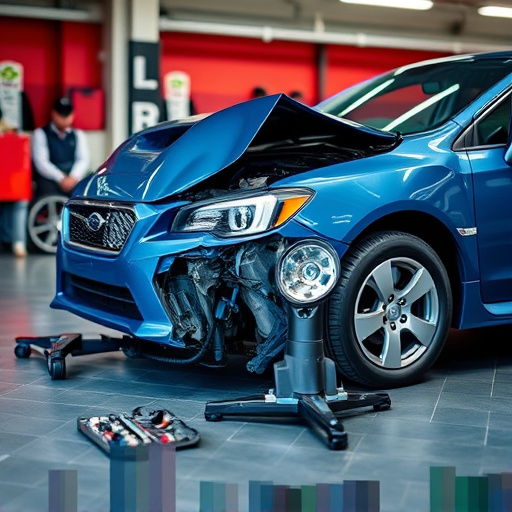
In modern vehicle production, advanced welding techniques play a pivotal role in ensuring safety and structural integrity, with Mercedes leading the way through its implementation of Euro NCAP and global safety standards. These methods extend beyond traditional spot welding, incorporating sophisticated processes like laser welding, robot-assisted TIG (Tungsten Inert Gas) welding, and remote arc welding. Such innovations not only enhance precision but also strengthen the overall car body, critical for protecting passengers during accidents.
Mercedes factory welding methods are meticulously designed to cater to diverse vehicle components, from chassis to paneling. Advanced robots equipped with force feedback sensors ensure consistent quality across every weld, while computer-aided design (CAD) and simulation software optimize joint configurations. This meticulous approach translates into superior car body repair capabilities, ensuring that each vehicle undergoes rigorous testing to meet stringent safety criteria before leaving the assembly line. Moreover, these techniques extend beyond mere production, facilitating efficient auto body services for repairs and maintenance, ultimately contributing to vehicles’ longevity and safety.
Mercedes’ adherence to Euro NCAP and global safety standards underscores its commitment to utilizing advanced Mercedes factory welding methods that enhance vehicle structural integrity. Through continuous innovation, Mercedes employs cutting-edge welding techniques in modern vehicles’ production, ensuring not only superior safety but also setting industry benchmarks for crashworthiness. These methods are vital to achieving high ratings in collision testing, ultimately protecting passengers and fostering a safer driving experience.

